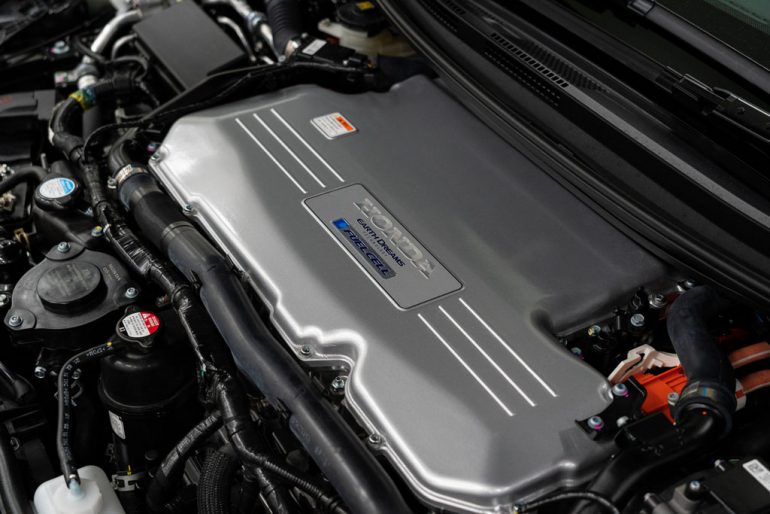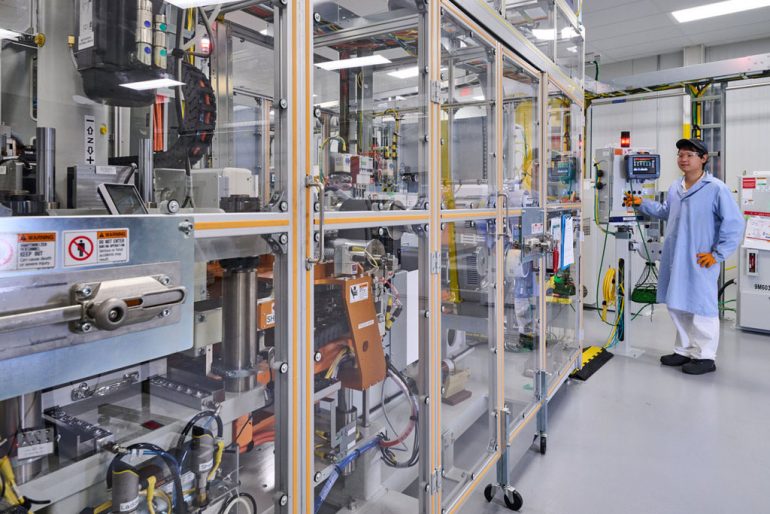
General Motors (GM) and Honda have embarked on a collaborative effort to advance the commercial production of hydrogen fuel cell technology. The two automotive giants recently announced the commencement of shipments for fuel cell power systems from a factory near Detroit. This initiative serves as a significant test to determine whether hydrogen power can successfully penetrate the mass market.
The initial production scale for fuel cell power units is modest, with Honda expressing its goal to deliver 2,000 units annually by the middle of the decade. Honda plans to incorporate fuel cells into a version of its popular CR-V sport utility vehicle set to be unveiled in March. Additionally, these fuel cells will find applications in other products, such as stationary power generators. The collaboration extends beyond vehicles, with the development of a hydrogen-fueled Class 8 semi-truck in partnership with Japanese truck maker Isuzu.
GM, with its longstanding history in fuel cell development spanning nearly 60 years, has previously outlined plans to supply fuel cell systems to commercial truck maker Autocar and heavy mining and construction equipment manufacturer Komatsu. Under the Hydrotec brand, GM is actively marketing fuel cells. The company’s CEO, Mary Barra, revealed in 2021 that GM was working on a medium-duty commercial truck utilizing fuel-cell power. However, specific details regarding production volume targets and timing for the GM fuel cell truck remain undisclosed.

The push for commercially viable fuel cell technology is not exclusive to GM and Honda, as rival automakers like Hyundai, Toyota, Stellantis, Daimler Trucks, and U.S. startup Nikola are also investing in this alternative. These efforts are motivated by the desire to replace diesel motors, especially in the face of increasingly stringent clean air standards. Fuel cell technology is particularly appealing due to its potential to replicate the hauling power and rapid refueling capabilities of heavy diesel engines, surpassing the limitations of traditional batteries.
Despite government subsidies and incentives, the widespread adoption of fuel cell technology has faced challenges, primarily stemming from the high cost of systems and a lack of hydrogen refueling infrastructure. To address this, the GM-Honda joint venture aims to collaborate with customers possessing the capacity for centralized refueling, thereby supporting the commercial production of hydrogen fuel cell systems. As the automotive industry continues to navigate the transition towards cleaner and more sustainable technologies, the success of ventures like GM and Honda’s collaboration could play a pivotal role in shaping the future landscape of transportation.
Source: Reuters

Lloyd Tobias is a seasoned automotive journalist and passionate enthusiast with over 15 years of experience immersed in the world of cars. Whether it’s exploring the latest advancements in automotive technology or keeping a close pulse on breaking industry news, Lloyd brings a sharp perspective and a deep appreciation for all things automotive. His writing blends technical insight with real-world enthusiasm, making his contributions both informative and engaging for readers who share his love for the drive. When he’s not behind the keyboard or under the hood, Lloyd enjoys test driving the newest models and staying ahead of the curve in an ever-evolving automotive landscape.